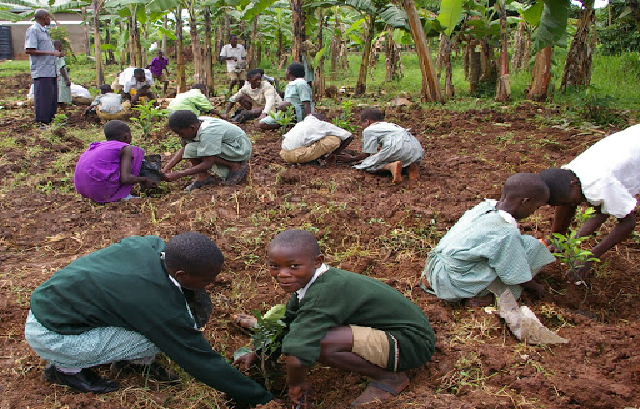According to Mohammed Abdullahi, Minister of Environment, the Federal Government has replanted approximately 20 million hectares of land across the nation as part of its afforestation/reforestation initiative.
The minister indicated in his keynote presentation at the 16th meeting of the National Council on Environment in Abuja that the decision was part of the government’s efforts to achieve zero carbon emissions.
“We are encouraging and implementing climate-positive and nature-positive initiatives to improve adaptive capacity and ecosystem resilience while boosting the livelihoods of local communities and indigenous people,” he added.
“With funding from the annual appropriation, sovereign green bond, and private sector, more than 20 million hectares of land have been planted up by the ministry under the national afforestation/reforestation programme targeting degraded forest reserves, degraded landscapes and vulnerable ecosystems across all the ecological zones of the country.
“While more than 24,000 hectares of degraded lands and erosion sites have been reclaimed or mitigated with the support of development partners.”
Abdullahi stated that Nigeria’s forest ecosystems existed within a context in which the ripple effects of population and economic growth across the country had been driving the rapid depletion of forests at an annual rate estimated to be in the range of 0.72 to 2.38 per cent.
He said, “The forest sector’s GHG (greenhouse gas) emissions in Nigeria mainly stem from deforestation and forest degradation from land use conversion.
“And the key drivers are small-scale and commercial agricultural expansion, heavy reliance on wood fuel particularly firewood and charcoal, unsustainable timber extraction, urban expansion, grazing, bush burning, large infrastructure development and mining.”
In the area of climate change adaptation, he stated that a National Adaptation Communication document, which provided a mechanism for Nigeria to report priorities, implementation and support needs, plans and actions, had been developed.
This, he said, was in addition to a National Adaptation Plan Framework to help with adaptation planning and governance.
He said the Federal Ministry of Environment would leverage its strong partnership with the Federal Ministry of Agriculture and Rural Development to ensure implementation and, if necessary, redesign agricultural policies and programmes to incentivise sustainable and climate-smart agriculture, promote food security, and benefit the environment.
“Further to the Glasgow’s Declaration, we will not relent in joining forces in pursuit of a sustainable land use transition which is essential to meeting the Paris Agreement goals, including reducing vulnerability to the impacts of climate change and holding the increase in the global average temperature to well below two degrees Celsius and pursuing efforts to limit it to 1.5,” Abdullahi stated.
He added, “Science shows a further acceleration of effort is needed if we are to collectively keep 1.5 °C within reach.” Together, we can succeed in fighting climate change, delivering resilient and inclusive growth, and halting and reversing forest loss and land degradation.
















